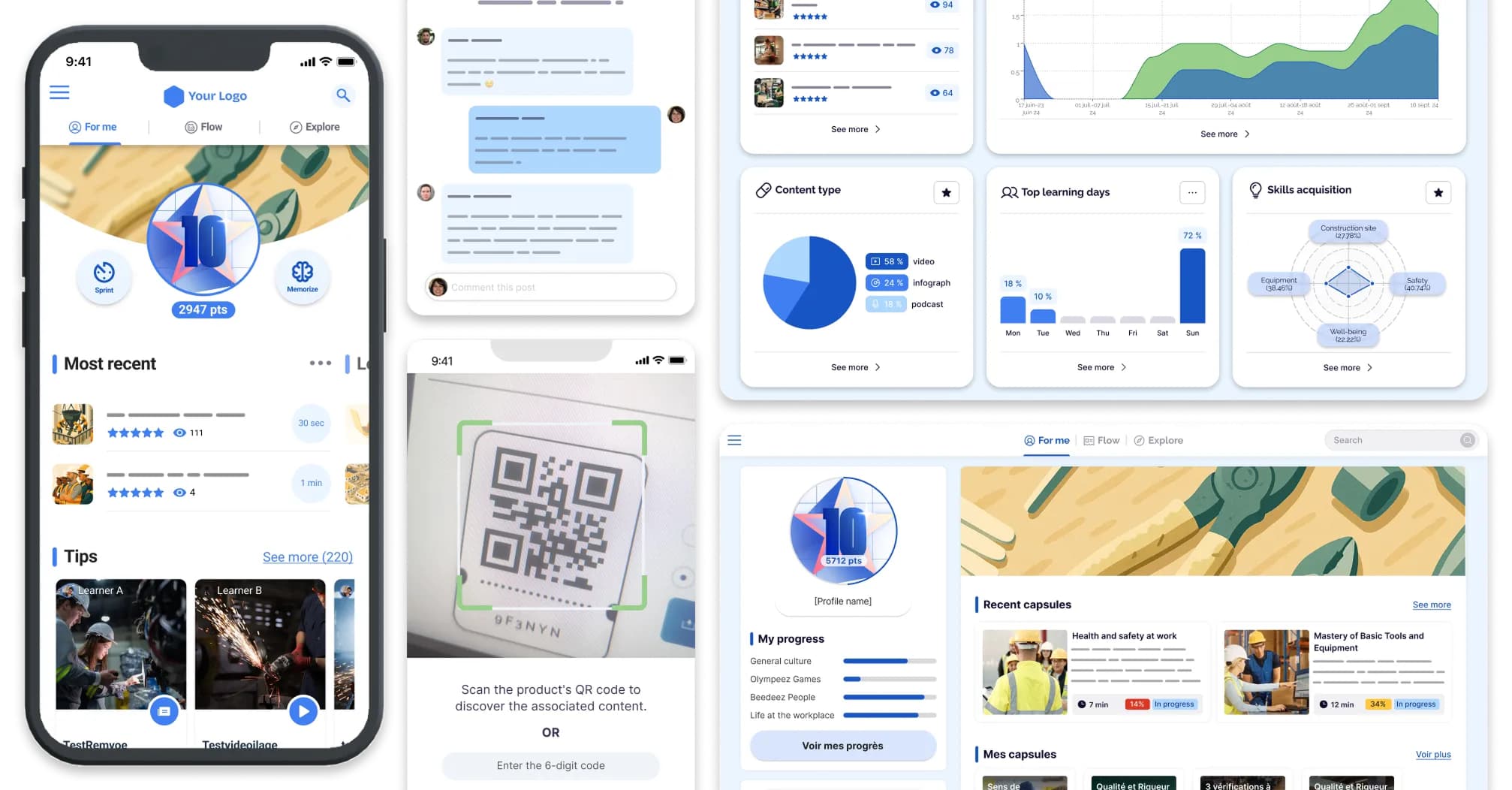Proximity, structured and human management is proving to be the key to significantly reduce the high turnover rate of field teams in the restaurant sector.
👉 By taking action on the meaning given to work, recognition, integration and prospects for development, companies can retain their employees and thus optimize the quality of service and the working environment.
Decryption
The restaurant sector is particularly affected by the constant renewal of its field teams.
Several factors explain this instability:
- Demanding working conditions: Irregular hours, constant pressure and a steady pace of work put a strain on employees.
- A lack of valuation and perspectives : A feeling of not being recognized at one's fair value or of being stagnant professionally can lead to rapid demotivation.
- An integration that is often overlooked : Insufficient reception and support when taking up a job can discourage newcomers.
These combined elements contribute to a psychological wear and frequent departures, negatively impacting the overall performance of the establishment.
👉 Proximity management acts as a powerful driver of loyalty. It gives meaning to work, values contributions, establishes a climate of trust and caring, supports the integration of new employees and encourages the development of their skills.
On a daily basis, this must be reflected in regular team rituals, the adoption of appropriate communication tools, recognition in all its forms and gradual empowerment of teams.
What do the figures on turnover in the restaurant industry reveal
- Replacement cost : The replacement of an employee can represent up to 1.5 times his annual salary. Reducing turnover therefore has a considerable direct financial impact on your business.
- Commitment and loyalty : Companies with effective local management have a rate of engagement of field employees 25% higher. Engaged teams are more productive and stay longer.
- Quality of service : A study reveals that restaurants with low turnover have 15% higher customer satisfaction. Team stability translates into a better customer experience.
- Learning culture : Institutions that invest in continuing education and offer career opportunities to their field teams note a decrease in turnover of 20% on average
Why is turnover so high in your restaurant field teams?
As you can certainly see in your establishment, the incessant ballet of arrivals and departures within your field teams is a worrying reality. This instability, far from being inevitable, has its roots in several interrelated factors:
Working conditions that are often harsh : The days are getting longer, the peaks of activity require constant reactivity, and staggered schedules can impact the work/life balance of your employees. The pressure of the service and the frenetic pace can generate significant physical and mental fatigue.
A feeling of non-recognition or of stagnation : Your employees in the field can sometimes have the impression that their efforts are going unnoticed or that their prospects for development are limited. A lack of constructive feedback and a lack of appreciation for their daily work can lead to a feeling of demotivation and the desire to look for new opportunities.
An integration that is sometimes expeditious : The arrival of a new collaborator on a field position can sometimes be hasty, with a lack of support and adequate initial training. This lack of support can lead to feelings of isolation and difficulty adapting quickly to job requirements.
💡 These elements, when they accumulate, create a vicious circle where demotivation sets in, departures multiply and psychological wear and tear is gaining ground within your teams.
How can local management build the loyalty of your teams?
Faced with this turnover challenge, a powerful lever is available to you: proximity management. By rethinking the management approach of your field teams, you can create a more engaging work environment and promote the loyalty of your employees:
Give meaning and value the work done : Take the time to recognize the efforts of your teams on a daily basis. Positive and constructive feedback, even for small victories, helps to reinforce their sense of purpose and their pride in a job well done. Highlight the direct impact of their contribution on customer satisfaction and the success of your establishment.
Establishing a climate of trust and caring : Listen to the concerns of your employees, encourage open and transparent communication. Caring management, capable of resolving conflicts quickly and taking into account individual needs, is essential to create a serene and safe working environment.
Support integration in a structured way: Set up a clear and personalized welcome process for each newcomer. Sponsorship by an experienced member of the team, comprehensive initial training and regular follow-up during the first weeks facilitate their integration and strengthen their sense of belonging.
Encourage the development of skills and career prospects : Show your teams that you are investing in their future. Offer continuing education, identify potentials and offer opportunities for internal mobility or evolution into positions of responsibility. Regular monitoring of the career aspirations of your employees makes it possible to build motivating careers together.
These companies that have reduced turnover in the restaurant industry
starbucks
Starbucks is often cited as a model for reducing turnover in the restaurant industry. The company offers competitive advantages, such as health coverage, free shares, and professional development opportunities. Result: its turnover rate is estimated at 65%, well below the industry average.
Chick-fil-A
This American channel has set up a management system focused on listening and personal development. It offers scholarships to its employees and offers them flexible hours to balance professional and personal lives. Thanks to these practices, Chick-fil-A displays a turnover rate of less than 60% at 18 months, compared to an average of 95% in fast-food restaurants.
What concrete management practices can make a difference in your restaurant?
To translate these principles into concrete actions within your establishment, here are some management practices that can have a significant impact on the commitment and loyalty of your field teams:
Establish regular team rituals : Daily briefings to share goals and important information, on-the-spot debriefings to analyze the service and identify areas for improvement, and informal moments of cohesion to strengthen relationships between team members are all opportunities to promote communication and team spirit.
Adopt fluid and adapted communication tools : Use instant messaging dedicated to field teams to facilitate the exchange of information in real time. Encourage direct exchanges and organize regular feedback sessions to maintain a constant dialogue.
Value recognition in all its forms: Set up a formal (badges, challenges with rewards) and informal (personalized thanks, highlighting successes) recognition system. Celebrate individual and collective successes to build motivation and a sense of belonging.
🎚️ Promote progressive accountability : Entrust your employees with increasingly complex missions based on their skills and experience. Value their field expertise by involving them in decision-making and giving them greater autonomy in the organization of their work.




